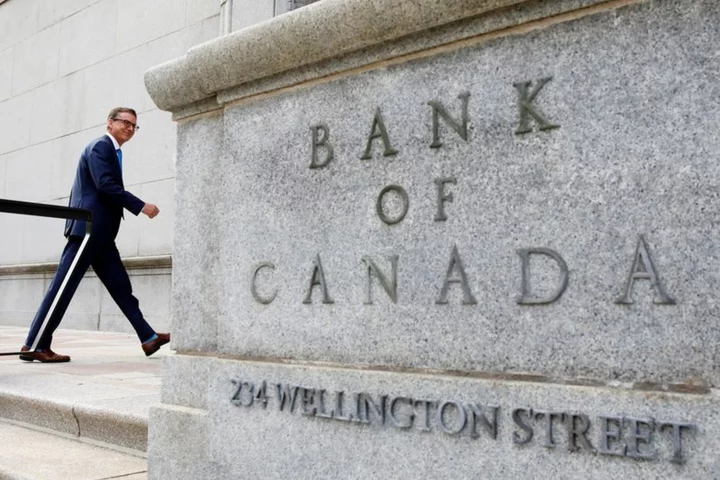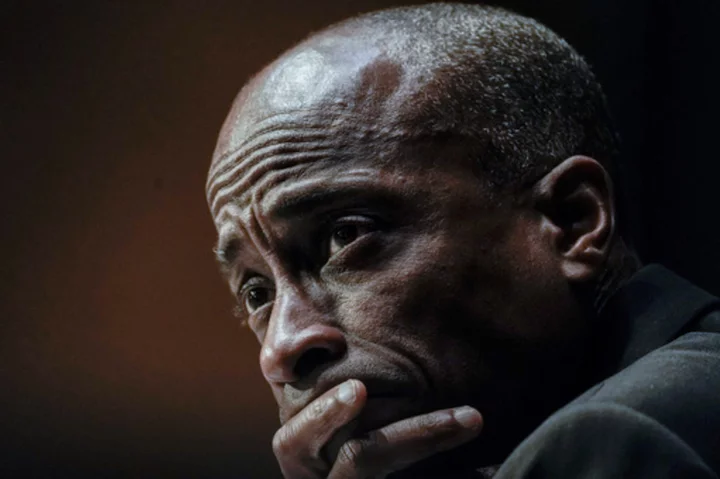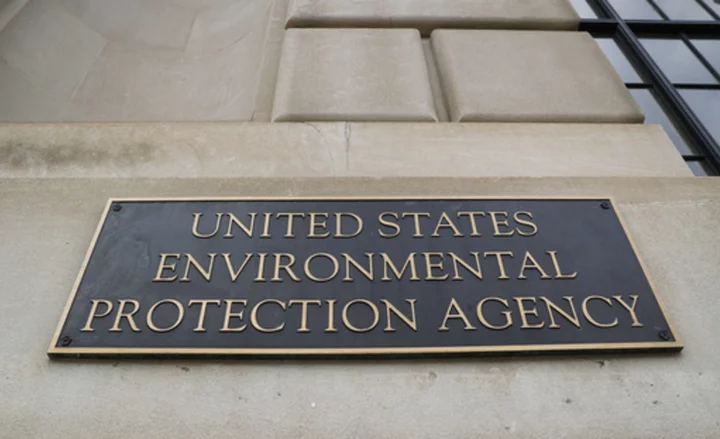By Steve Scherer and David Ljunggren
OTTAWA Some members of the Bank of Canada's (BoCs) policy-setting governing council saw the likely need for further interest rate hikes when they left borrowing costs on hold on Oct. 25, minutes published on Wednesday showed.
The six council members reached a "strong consensus" to leave rates at a 22-year high of 5.00% to collect more evidence that growth and inflation were slowing, according to the minutes, known as the summary of deliberations.
The BoC sets rates by consensus. The bank began providing minutes of the discussions this year and this is the first time they have shown a possible policy split within the council.
"Some members felt that it was more likely than not that the policy rate would need to increase further to return inflation to target," the minutes read. "Others viewed the most likely scenario as one where a 5% policy rate would be sufficient to get inflation back to the 2% target, provided it was maintained at that level for long enough."
The minutes went on to say that the council decided to be "patient" and leave rates on hold.
"They agreed to revisit the need for a higher policy rate at future decisions with the benefit of more information," the minutes said.
In October, the BoC said the path to avoid a recession had narrowed, and it left the door open to more hikes.
The bank is trying to walk a fine line. It wants to cool the economy just enough to bring down inflation, but it does not want to jack up rates too high and trigger a deep recession, Governor Tiff Macklem has said.
The bank increased rates 10 times between March 2022 and this July, with inflation peaking at more than 8% last year. Inflation in September was 3.8%, but the BoC says it will not come down to target until end-2025.
While the council seemed to lean to the hawkish side, Macklem said in a CBC interview on Oct 25 that rates may be at their peak. The minutes reveal there was concern the economy could slow more than expected.
"If global financial conditions tighten further or past increases in the policy interest rate restrain demand more than expected, the economy could be weaker and inflation lower than projected," the document read.
The council also discussed the rising spending by the provincial and federal governments, which "could get in the way of returning inflation to target".
(Reporting by Steve Scherer, editing by David Ljunggren)
((Reuters Ottawa bureau; david.ljunggren@tr.com))
Keywords: CANADA CENBANK/









